-
 Bitcoin
Bitcoin $107,323.9971
-0.42% -
 Ethereum
Ethereum $2,442.7415
-1.58% -
 Tether USDt
Tether USDt $1.0005
0.00% -
 XRP
XRP $2.0902
-4.49% -
 BNB
BNB $645.3561
-0.33% -
 Solana
Solana $140.8832
-2.81% -
 USDC
USDC $0.9999
0.01% -
 TRON
TRON $0.2713
0.17% -
 Dogecoin
Dogecoin $0.1611
-2.35% -
 Cardano
Cardano $0.5556
-2.75% -
 Hyperliquid
Hyperliquid $36.8045
-1.10% -
 Bitcoin Cash
Bitcoin Cash $494.4393
-1.23% -
 Sui
Sui $2.6406
-2.97% -
 Chainlink
Chainlink $13.0846
-1.74% -
 UNUS SED LEO
UNUS SED LEO $9.0127
0.09% -
 Avalanche
Avalanche $17.4023
-1.37% -
 Stellar
Stellar $0.2339
-3.25% -
 Toncoin
Toncoin $2.8330
-0.57% -
 Shiba Inu
Shiba Inu $0.0...01124
-3.38% -
 Litecoin
Litecoin $84.9229
-0.60% -
 Hedera
Hedera $0.1432
-3.84% -
 Monero
Monero $311.0740
-1.35% -
 Bitget Token
Bitget Token $4.6591
3.94% -
 Dai
Dai $1.0001
0.01% -
 Ethena USDe
Ethena USDe $1.0000
-0.01% -
 Polkadot
Polkadot $3.3033
-1.64% -
 Uniswap
Uniswap $6.9221
-4.55% -
 Pi
Pi $0.5546
-4.86% -
 Aave
Aave $257.5046
-1.30% -
 Pepe
Pepe $0.0...09215
-3.26%
Deepcoin Contract Trading Guide
In contract trading, risk management practices, such as stop-loss and take-profit orders, are crucial for mitigating losses and locking in profits effectively.
Nov 27, 2024 at 02:52 am

Deepcoin Contract Trading Guide
Introduction
Contract trading is a derivative financial instrument that allows traders to speculate on the future price of an underlying asset without owning the asset itself. Contracts are typically traded on a futures exchange, and they can be used to hedge against risk or to speculate on price movements.
How Contract Trading Works
Contract trading is based on the concept of futures contracts. A futures contract is an agreement to buy or sell a specific amount of an underlying asset at a specified price on a future date. The buyer of a futures contract is obligated to buy the asset at the agreed-upon price on the expiration date, and the seller of a futures contract is obligated to sell the asset at the agreed-upon price on the expiration date.
The price of a futures contract is determined by the spot price of the underlying asset, plus or minus the cost of carry. The cost of carry is the cost of financing the position until the expiration date, and it includes the interest rate, storage costs, and other expenses.
Benefits of Contract Trading
- Leverage: Contract trading allows traders to use leverage to increase their potential profits. Leverage is the use of borrowed funds to trade, and it can magnify both profits and losses.
- Hedging: Contract trading can be used to hedge against risk. By taking an opposite position in a futures contract, traders can reduce their exposure to price fluctuations in the underlying asset.
- Speculation: Contract trading can be used to speculate on price movements in the underlying asset. Traders can buy futures contracts if they believe the price will rise, or they can sell futures contracts if they believe the price will fall.
Risks of Contract Trading
- Margin calls: If the price of the underlying asset moves against the trader's position, the trader may be required to post additional margin to maintain the position. Margin calls can be a significant source of risk, and they can lead to losses if the trader is unable to meet the margin call.
- Liquidations: If the price of the underlying asset moves against the trader's position and the trader is unable to meet a margin call, the position may be liquidated. Liquidations can result in significant losses, and they can also damage the trader's reputation.
- Leverage: Leverage can magnify both profits and losses, and it can increase the risk of margin calls and liquidations. Traders should use leverage carefully, and they should only trade with funds that they can afford to lose.
How to Trade Contracts
1. Choose a Trading Platform
The first step to trading contracts is to choose a trading platform. There are many different trading platforms available, and each platform has its own features and fees. Some of the most popular trading platforms include:
- Binance
- Huobi
- OKEx
- Bybit
- Deribit
2. Fund Your Account
Once you have chosen a trading platform, you will need to fund your account with cryptocurrency. You can fund your account by depositing cryptocurrency from a personal wallet or by purchasing cryptocurrency directly from the trading platform.
3. Open a Contract Trading Position
Once your account is funded, you can open a contract trading position. To do this, you will need to select the underlying asset, the contract type, and the contract expiration date. You will also need to specify the amount of the contract that you want to trade and the price that you want to enter the trade at.
4. Monitor Your Position
Once you have opened a contract trading position, you will need to monitor your position on a regular basis. The price of the underlying asset can change quickly, and you will need to be prepared to adjust your position accordingly. You can monitor your position by logging into your trading account and viewing the open positions tab.
5. Close Your Position
When you are ready to close your position, you will need to submit a sell order for the same amount of the contract that you originally bought. This will close your position and lock in your profit or loss.
Contract Trading Strategies
There are many different contract trading strategies that traders can use. Some of the most common strategies include:
- Trend following: This strategy involves following the trend of the underlying asset and taking positions in the direction of the trend.
- Counter-trend trading: This strategy involves taking positions against the trend of the underlying asset.
- Range trading: This strategy involves trading within a specific price range.
- Scalping: This strategy involves taking small profits on frequent trades.
- Arbitrage: This strategy involves taking advantage of price differences between different trading platforms.
Risk Management
Risk management is an essential part of contract trading. There are many different risk management techniques that traders can use, and some of the most common techniques include:
- Stop-loss orders: Stop-loss orders are designed to limit the potential loss on a trade. A stop-loss order is an order to sell the contract at a specified price if the price of the underlying asset falls below that price.
- Take-profit orders: Take-profit orders are designed to lock in a profit on a trade. A take-profit order is an order to sell the contract at a specified price if the price of the underlying asset rises above that price.
- Margin management: Margin management is essential for controlling the risk of margin calls and liquidations. Traders should
Disclaimer:info@kdj.com
The information provided is not trading advice. kdj.com does not assume any responsibility for any investments made based on the information provided in this article. Cryptocurrencies are highly volatile and it is highly recommended that you invest with caution after thorough research!
If you believe that the content used on this website infringes your copyright, please contact us immediately (info@kdj.com) and we will delete it promptly.
- Bitcoin Price Puzzle: Institutional Buying vs. Market Discrepancy Explained
- 2025-06-27 22:30:12
- Neo Pepe Coin ($NEOP): Certik Audit Success & Crypto Presales Heats Up
- 2025-06-27 22:30:12
- Bitcoin Price Prediction: Mixed Signals as BTC Eyes $110K
- 2025-06-27 22:50:11
- Coinbase's Bitcoin Futures Launch: A New Era for US Crypto Trading?
- 2025-06-27 22:35:11
- LUNC Price on Edge: Weekly Burn vs. Risky Pattern – What's Next?
- 2025-06-27 22:35:11
- SHIB, DOGE, and the Meme Coin Mania: What's Hot and What's Not?
- 2025-06-27 21:27:13
Related knowledge
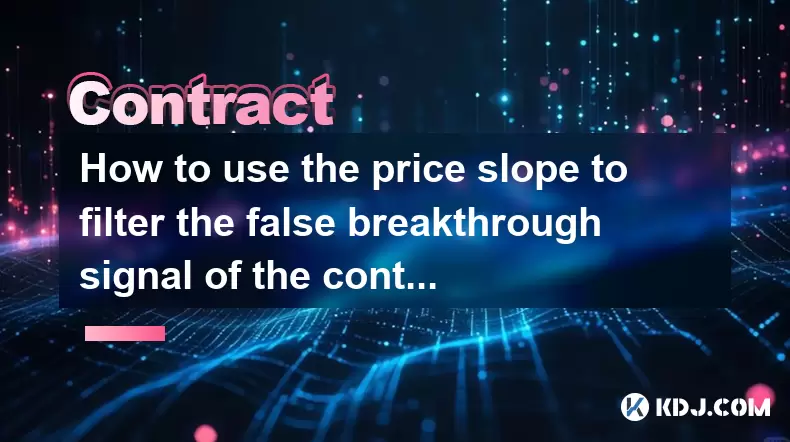
How to use the price slope to filter the false breakthrough signal of the contract?
Jun 20,2025 at 06:56pm
Understanding the Concept of Price Slope in Contract TradingIn contract trading, especially within cryptocurrency derivatives markets, price slope refers to the rate at which the price changes over a specific time period. It helps traders assess the strength and sustainability of a trend. A steep slope may indicate strong momentum, while a shallow slope...
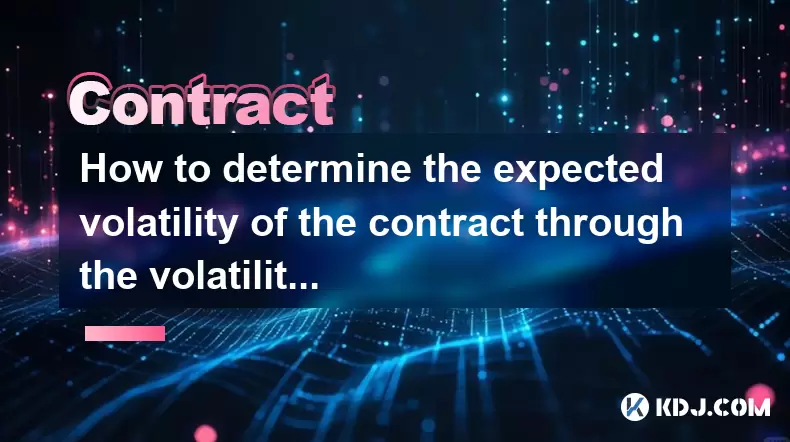
How to determine the expected volatility of the contract through the volatility cone?
Jun 19,2025 at 12:28pm
Understanding the Basics of Volatility in Cryptocurrency ContractsIn the realm of cryptocurrency trading, volatility is a key metric that traders use to assess potential risk and reward. When dealing with futures contracts, understanding how volatile an asset might become over time is crucial for position sizing, risk management, and strategy developmen...
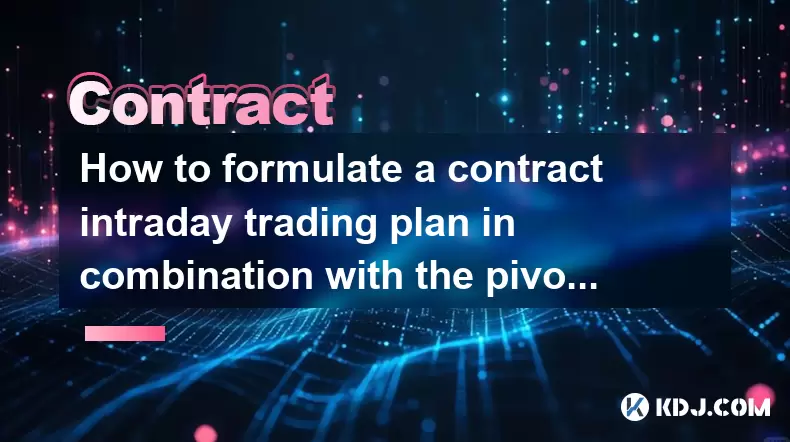
How to formulate a contract intraday trading plan in combination with the pivot point system?
Jun 21,2025 at 03:42pm
Understanding the Basics of Pivot Points in Cryptocurrency TradingPivot points are technical analysis tools used by traders to identify potential support and resistance levels. These levels are calculated using the previous day's high, low, and closing prices. In the context of cryptocurrency trading, where markets operate 24/7, pivot points help trader...
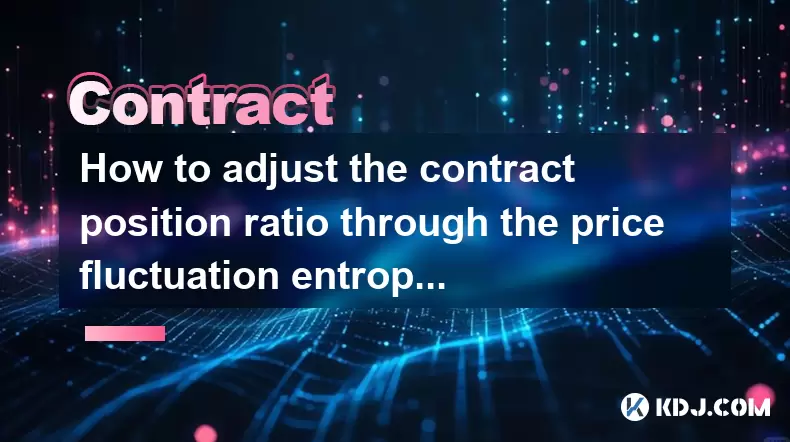
How to adjust the contract position ratio through the price fluctuation entropy?
Jun 22,2025 at 11:42am
Understanding Price Fluctuation Entropy in Cryptocurrency ContractsIn the world of cryptocurrency futures trading, price fluctuation entropy is a relatively new concept used to measure market volatility and uncertainty. It derives from information theory, where entropy refers to the degree of randomness or unpredictability in a system. In crypto contrac...
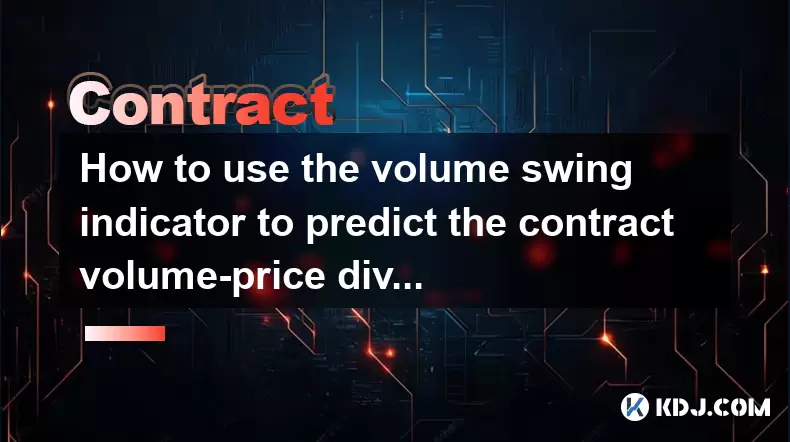
How to use the volume swing indicator to predict the contract volume-price divergence?
Jun 18,2025 at 11:42pm
Understanding the Volume Swing IndicatorThe volume swing indicator is a technical analysis tool used primarily in cryptocurrency trading to evaluate changes in volume over time. Unlike price-based indicators, this metric focuses solely on trading volume, which can provide early signals about potential market reversals or continuations. The key idea behi...
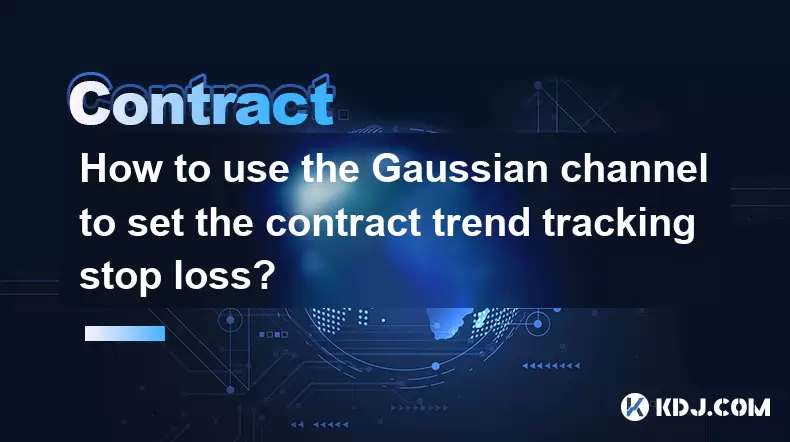
How to use the Gaussian channel to set the contract trend tracking stop loss?
Jun 18,2025 at 09:21pm
Understanding the Gaussian Channel in Cryptocurrency TradingThe Gaussian channel is a technical indicator used primarily in financial markets, including cryptocurrency trading, to identify trends and potential reversal points. It is based on statistical principles derived from the normal distribution, commonly known as the Gaussian distribution or bell ...

How to use the price slope to filter the false breakthrough signal of the contract?
Jun 20,2025 at 06:56pm
Understanding the Concept of Price Slope in Contract TradingIn contract trading, especially within cryptocurrency derivatives markets, price slope refers to the rate at which the price changes over a specific time period. It helps traders assess the strength and sustainability of a trend. A steep slope may indicate strong momentum, while a shallow slope...

How to determine the expected volatility of the contract through the volatility cone?
Jun 19,2025 at 12:28pm
Understanding the Basics of Volatility in Cryptocurrency ContractsIn the realm of cryptocurrency trading, volatility is a key metric that traders use to assess potential risk and reward. When dealing with futures contracts, understanding how volatile an asset might become over time is crucial for position sizing, risk management, and strategy developmen...

How to formulate a contract intraday trading plan in combination with the pivot point system?
Jun 21,2025 at 03:42pm
Understanding the Basics of Pivot Points in Cryptocurrency TradingPivot points are technical analysis tools used by traders to identify potential support and resistance levels. These levels are calculated using the previous day's high, low, and closing prices. In the context of cryptocurrency trading, where markets operate 24/7, pivot points help trader...

How to adjust the contract position ratio through the price fluctuation entropy?
Jun 22,2025 at 11:42am
Understanding Price Fluctuation Entropy in Cryptocurrency ContractsIn the world of cryptocurrency futures trading, price fluctuation entropy is a relatively new concept used to measure market volatility and uncertainty. It derives from information theory, where entropy refers to the degree of randomness or unpredictability in a system. In crypto contrac...

How to use the volume swing indicator to predict the contract volume-price divergence?
Jun 18,2025 at 11:42pm
Understanding the Volume Swing IndicatorThe volume swing indicator is a technical analysis tool used primarily in cryptocurrency trading to evaluate changes in volume over time. Unlike price-based indicators, this metric focuses solely on trading volume, which can provide early signals about potential market reversals or continuations. The key idea behi...

How to use the Gaussian channel to set the contract trend tracking stop loss?
Jun 18,2025 at 09:21pm
Understanding the Gaussian Channel in Cryptocurrency TradingThe Gaussian channel is a technical indicator used primarily in financial markets, including cryptocurrency trading, to identify trends and potential reversal points. It is based on statistical principles derived from the normal distribution, commonly known as the Gaussian distribution or bell ...
See all articles























































































